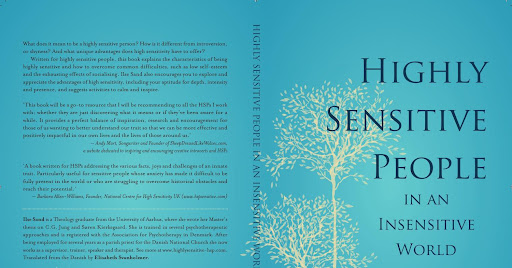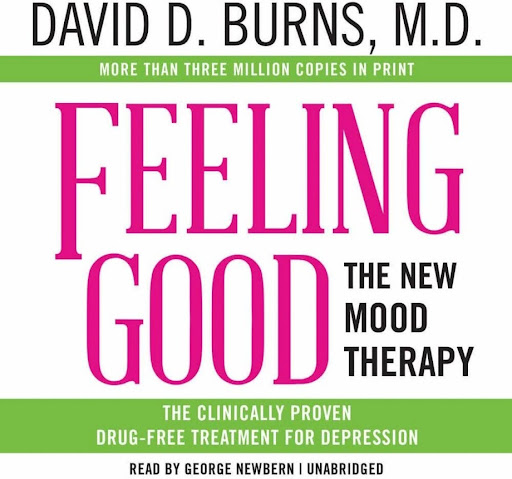There are many colors and shades in our life palette. Therefore, it is essential not to forget about your mental health to maintain harmony and balance. And one of the most effective ways to support mental health is through reading. Books can help us understand our emotions and relationships with the world around us and relieve stress, anxiety, and depression. Therefore, if you are looking for books to improve your mental health, we have prepared a list of recommendations for you. In this list, you will find books to help you understand and find a way out of the most common psychological problems.
We’ve compiled a few books to help you better understand your thoughts, feelings, and emotions. After all, having problems with mental health, the best solution is not to run away to the Bollywood casino, online slots, and similar entertainment and try to deal with it.
How books help our mental health
Psychological problems can affect our mental health and life achievements. However, by knowing how to deal with your health and psychological well-being, you can improve your quality of life and succeed in your personal and professional endeavors. Psychology books are a valuable source of information for those seeking answers to their questions. Here are some reasons why psychology books can help your mental health:
- They provide knowledge and practical advice on issues faced in everyday life, such as anxiety, depression, relationships, etc.
- Psychology books can help you understand your psyche, which can increase your mental well-being.
- They will teach you to understand other people, which can improve your relationships with them and reduce conflicts.
- Psychology books allow you to broaden your horizons and your view of the world.
The list of books that can help improve mental health includes works by authors such as Stephen Covey, Anna Freud, the Dalai Lama, and others. But today, we will learn about less famous but no less valuable works by other psychologists.

“Highly Sensitive People in an Insensitive World: How to Create a Happy Life,” by Ilse Sand
A book for those who suffer from oversensitivity, quickly tire of society, and enjoy solitude. It describes various aspects of the problem, including sensitivity to sounds, smells, light, criticism, and negative emotions.
Danish writer and certified psychotherapist Ilse Sand has experienced the hardships and joys of living with susceptible people, so she offers practical tips and strategies to help manage emotions and stress and use the vulnerability to her advantage. Readers will understand how to set boundaries in their relationships with others and learn to distinguish their feelings from those of others.
Perhaps after reading this book, you will finally begin to live at peace with yourself, learn to say “no,” and discover that acute feelings are an asset, not a problem, in a cruel world.
“Fear, Hope, Dread, and the Search for Peace of Mind,” by Scott Stossel
Today, one in six people worldwide suffers from chronic stress and anxiety at some point in their lives. Author Scott Stossel experienced many variations of phobias from an early age and, as a result, began to look for ways to overcome them.
In the book, the writer explores the causes of neuroses, fears, insomnia, and panic attacks, as well as treatments, breaking down the mistakes and advances in biochemistry and neurobiology, genetics and psychopharmacology, psychotherapy, and psychiatry.
This book is a tense and gripping story of a man’s struggle for himself.
“The Gift. 12 Lessons to Save Your Life,” Edith Eger
Writer Edith Eger released the book at the age of 90. In it, she has written tips for taking care of your mental health and getting rid of childhood trauma. In addition, she tells her story of going through the horrors of a Nazi concentration camp, suffering from starvation, and being buried alive. In the book, Eger shares 12 lessons that helped her survive and taught her to love and accept herself.
One of the book’s central themes is the understanding that we can’t change the past but can change how we relate to it, turn our suffering into strength, and live with gratitude.
The book will help those who have gone through difficult periods in life, are suffering from traumatic experiences, or are simply looking for inspiration to improve their lives. It is full of wise advice and forward-looking ideas on how to overcome difficulties and find peace within yourself.
“Feel Good. The New Mood Therapy,” David Burns
The book’s author is David Burns, professor of psychiatry at Stanford University School of Medicine, clinical psychiatrist, and expert in cognitive-behavioral therapy. The book became an international bestseller, selling more than three million copies.
It explains how our thoughts determine our feelings and how to cope with anxiety and low self-esteem. This practical guide helps people overcome negative emotions and improve their mood.
“Confronting Shame: How to Understand Your Shame and Gain Inner Freedom,” Ilse Sand
The narrative centers on shame, which can hide fears, fatigue, lack of love and care, and low self-esteem. The author speaks to her readers, using vivid examples from life, about the causes of shame and its consequences.
In addition, Ilse Sand gives recommendations and advice on how to learn to accept yourself and stop being afraid of your own emotions and feelings to live more openly and freely.
Why you should monitor your mental health
Mental health is a critical factor in our overall well-being, but too often, too little attention is paid to maintaining it. In today’s world, more and more people are paying attention to their mental health because they realize that it can affect their physical condition, productivity, and overall mood.
Here are a few reasons why you should take care of your mental health:
- Increased happiness: Mental health can affect our emotional stability, reduce stress, and boost satisfaction. Regular meditation, physical activity, and journaling help you maintain a positive attitude.
- Better relationships: How confident we are in ourselves is how we relate to others. Our mental health can affect this, so taking care of it is essential to maintaining a rich social network and strong relationships with loved ones.
- Higher productivity: Mental work requires time and energy, so maintaining mental health is essential to ensure greater productivity at work and in your personal life.
Thus, it is worth paying attention to our mental health, as it can positively affect our quality of life and overall well-being.
If you want to maintain your mental health, you should pay attention to psychology books. They can provide helpful tips, tools, and support in difficult situations.
Interesting Related Article: “How to Use Color Psychology in Interior Design for Health and Productivity“


